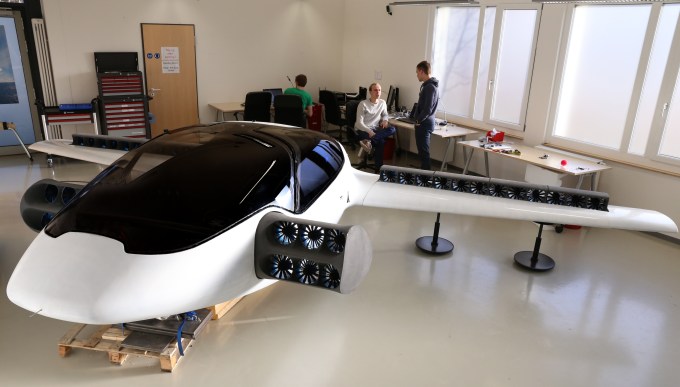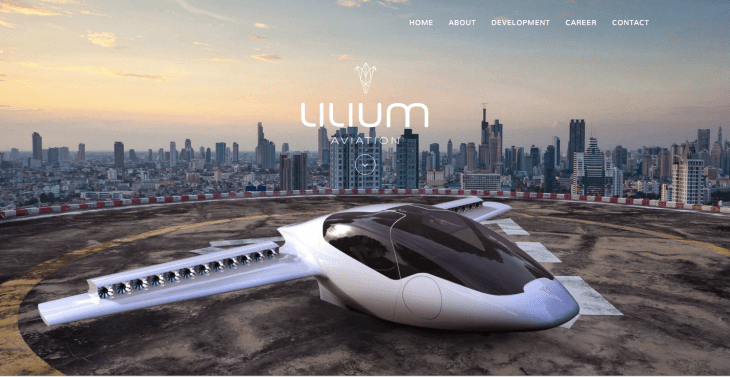Planting a flag in Europe for the development of the kind of “deep technology” companies that have long been the bread and butter of Silicon Valley, the European venture firm Atomico has invested 10 million euros in the vertical take-off and landing plane developer, Lilium Aviation.
The roughly $10.7 million Series A investment announced at TechCrunch Disrupt London is meant to help Lilium develop into a manufacturer of a commuter alternative to helicopters and traditional planes.
Since the 1950s and 1960s, flying cars have ranked right up there with jetpacks as an example of the fulfillment of our expectations for future travel (I still think the Uber and Lyft app is pretty magical).
VTOL technology has actually been around for decades (and historically has not been the safest), but Munich-based Lilium is touting their tech as being a far safer, cleaner and more societally friendly update.
The Lilium Jet is constructed using lightweight composite materials and powered by 36 directable, ducted electric fans, mounted on the wings and front pods to propel the aircraft.

A prototype of Lilium’s VTOL aircraft
The new round of financing actually doubles down on Atomico’s commitment to Lilium. Founded in 2015 by four co-founders who were all engineers and former doctoral students from the Technical University of Munich, the company raised a seed round from e42 and received support from the European Space Agency.
“What we like about it is that it’s a scalable design concept. It’s easier to start small and go bigger,” says Atomico chief executive, Niklas Zennström.
Unlike drone-based VTOL technologies coming from companies like eHang, or Marc Andreessen’s prospective flying cars, Zennström says that Lilium’s technology is more energy efficient, and here now.
The company expects its aircraft to have a range of roughly 300 kilometers and fly at 300 kilometers per hour.
And while these types of flying services are typically the purview of the rich and famous (think investment banking and hedge fund titans whizzing from homes in the Hamptons to helipads atop Manhattan skyscrapers), Zennström says that Lilium’s commuter trips will cost no more than a ride-sharing service.
“Daniel and his team are some of the most impressive and ambitious entrepreneurs coming out of Europe in a long time,” says Zennström. And the development of Lilium is the culmination of a lifelong fascination with flight.
“I started flying at the age of 13-and-a-half and I had my first flight alone in a glider when I was 14,” says Wiegand.
That fascination with flight led him to study aerospace technologies in University and together with three friends, he formed the company that would become Lilium.
From the beginning Wiegand was strategic, recruiting founders whose skillsets in composite materials, aerodynamics, and manufacturing would compliment his own.
“We knew each other from University times already. When there was the idea to design a VTOL take-off and landing team. We wanted the founding team to understand every aspect of the technology,” Wiegand says.
Lilium will do its first full-scale test-flights in the next year, but has no timeframe for full production on its vehicles.
What’s encouraging for the company and its prospects is the regulatory environment within which it operates. “We looked into, when we designed the plane, that we can certify the plane with existing legislation,” says Wiegand.
While the company’s VTOL aircraft is flight-ready now, as the industry moves toward more autonomous vehicles, Wiegand expects to be working with European regulators on meeting new requirements.
According to the company, the investment by Atomico let Lilium expand its existing team of 35 specialists and product engineers.
